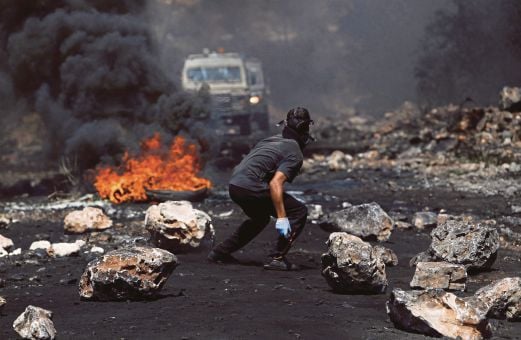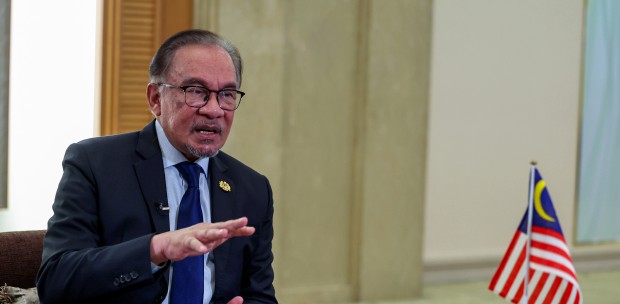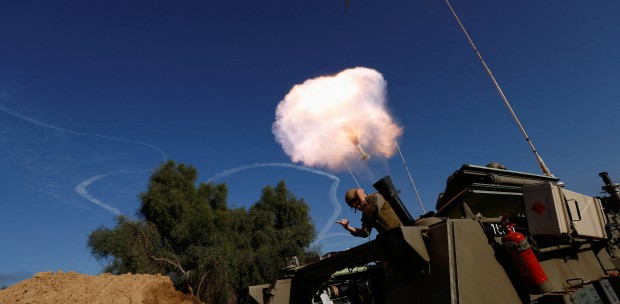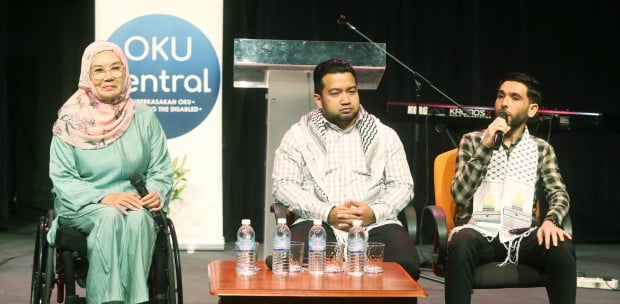THE year 2014 has been designated as an International Year of Solidarity for the Palestinian People. Last year, the General Assembly just barely managed to scrape up enough support to adopt (by a vote of 110 in favour, seven against, and 56 countries abstaining) resolution A/Res/68/12 to proclaim 2014 as Palestine’s year.
The resolution came on the heels of two consecutive years of Palestine making ripples within the United Nations — first in requesting for full membership to the UN, and then in gaining admittance to the United Nations Educational, Scientific and Cultural Organisation (Unesco).
To mark the year, a series of events have been planned at the UN and around the world. In early May, for example, the UN screened Omar, the Palestinian thriller and love story, which was nominated for Best Foreign Film at the recent Oscars. Even though Omar did not win at the Oscars, nor become a box-office hit, it still stood out as the first Palestinian movie to be entirely financed by Palestinians themselves.
Which was why the turnout of about only 100 people at the UN screening on May 1 was disappointing to say the least.
Perhaps Palestine is destined to always have a difficult road ahead of it.
In November 2011, Palestine submitted an application for full membership of the United Nations. It had held the status of an observer entity at the UN since 1974, and decided that enough was enough — it would now go for broke and claim its seat at the world body.
The UN Security Council, which normally sits as the Committee on the Admission of New Members, held two meetings but could not come to a unanimous decision.
Incidentally, the application was nicknamed the “Palestine 194 initiative” because if accepted, Palestine would be the 194th member of the UN. The application was not voted on because negotiations were furiously going on behind the scenes to mitigate any political fallout from the voting process.
Palestine did a quick tally of possible votes at the Security Council. In order to be admitted, it would need a minimum of nine votes — they could only count on eight at the time. Even if they managed to get nine, the United States had already declared that it would use its veto to block membership. So that was that.
But Palestine had come too far to back down. It went on to apply for membership to Unesco. Unesco could admit non-UN members into its ranks, provided that the application received the support of the General Conference of Unesco. Furthermore, no country had a veto in Unesco, unlike at the UN.
On Oct 31, 2011, the Unesco General Conference resisted US pressure and admitted Palestine as its newest member, with 107 countries voting in favour, 14 against and 52 countries abstaining. Many who abstained did so because they were informed that the US would cut funding to Unesco, which would cripple the organisation as a whole.
Back at the UN, Palestine decided that it would not pursue full membership. Instead it would present a resolution to the General Assembly, requesting an upgrade in status from “non-state observer” entity, to “observer state” status.
This is normally the last stage that a country occupies before it gets full membership. Switzerland remained an observer state for 56 years before it finally gave in and joined the UN in 2002.
In 2012, a year after Palestine first made the bold move for full membership, a draft resolution was presented to the General Assembly, with Malaysia joining the long list of co-sponsors. Three days after celebrating the 2012 International Day of Solidarity with Palestine, 138 members of the UN voted in favour of granting Palestine “observer state”.
Only nine countries voted against (Canada, Czech Republic, Israel, Marshall Islands, Micronesia, Nauru, Palau, Panama, and the US) while 41 others abstained, including Singapore in our region.
The statement made by Ambassador Ron Prosor of Israel at that meeting is worth reading — it is a study in how a master spinner can re-write history even while it is still fresh in our minds.
The victory for Palestine means that it has a standing invitation to all meetings of the UN. Nothing much changes in terms of its participation at the UN and its ability to deliver statements.
It cannot table resolutions, nor does it have the right to vote. It may, however, place items on the agenda of the Security Council or the General Assembly, and its status as a Unesco member allows it to participate on an equal basis with other countries at UN conferences.
The victory for Palestine is not in its participation at the UN. It is in the international community’s public recognition of Palestine, and the implicit recognition of Palestine’s sovereignty. It also brings a wealth of meaning to the term “Occupied Palestinian Territory”, which Israel administers.
Palestine’s struggle is far from over.






